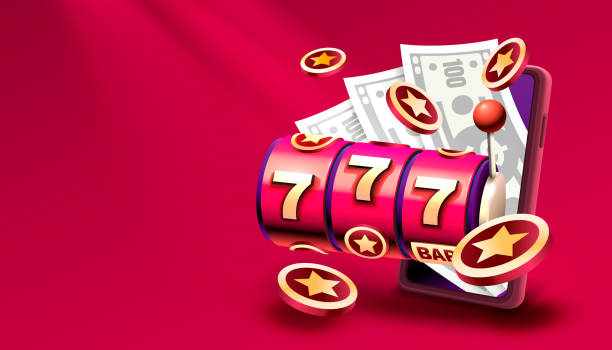
As you might expect, there are a lot of different games that have made their way across the globe. When somebody has a good idea for a game, it often spreads and becomes popular.
In the modern age, we see this more with console games. Something can suddenly go viral and lead to people all over the world downloading it to see what the fuss is about. Games didn’t use to spread like this, though. Instead, they would be played a lot by people locally, and gradually move across the globe if they were fun enough. Many games invented in Europe, including some table games, were only first played in the US back in the 1900s, and they have gone on to become truly massive!
In this guide, we’re exploring some of the global games that have a rich and interesting history.
Street Dice/craps
Street dice or street craps (as it is also called ) is a popular, informal version of casino craps played with just two dice, a flat surface and a bit of competition. It’s popular in urban areas and casual settings because it requires minimal setup and is easy to learn. Unlike traditional craps, street dice doesn’t need a table or specific layout, so players can gather wherever they find a suitable surface.
The game starts with a “shooter”, this being the person who rolls the dice, while other players place bets on the outcome. To begin, the shooter makes a starting bet. Others in the group, often called the “faders” in this game, will match or counter-bet against the shooter’s roll. Once the bets are put down and agreed (usually very quickly), the game kicks off with the “come-out” roll, which determines the course of play.
In the come-out roll, if the shooter rolls a 7 or 11, they win immediately, often called a “natural”. If they roll a 2, 3 or 12, they “crap out”, losing their bet, and typically, their turn as the shooter ends. If the shooter rolls any other number (4, 5, 6, 8, 9 or 10), that number becomes the “point”.
At this stage of the game, the aim shifts and the shooter’s goal is to roll the point number again before rolling a 7. If they successfully roll the point again, they win the round, and bets are paid accordingly. However, if they roll a 7 before hitting the point, it’s called “sevening out”, and they lose the round.
While the shooter is rolling, other players may place side bets. This might involve wagering on whether the shooter will win or lose, or making other simple predictions on the outcomes of specific rolls. This has evolved to casino play and there is often loads going on at the same time. It’s fair to say that street dice is a bit of a chaotic game. People are often shouting out their wagers and making propositions in real time while the game plays out.
Jogo do Lencinho (handkerchief game)
This is a game originating in Portugal that simply needs players and a handkerchief! It couldn’t be much simpler.

Jogo do Lencinho may make more sense if you watch a game play out. In Jogo do Lencinho, similar in spirit to “Duck, Duck, Goose”, players gather in a circle facing inward, while one person stands outside the circle with the handkerchief. The player with the handkerchief moves around the circle as everyone sings, dropping the handkerchief behind someone without them noticing. If the seated player realises the handkerchief is behind them, they jump up and chase the other player around the circle. The goal for the runner is to make it to the open spot in the circle before being tagged.
For a more complex way to play, you can split the group into two teams of equal size. Assign each player a number so that each team has players with matching numbers. Both teams line up facing each other, and an allotted judge places the handkerchief in the middle.
The judge calls out a number, and the two players with that number race to grab the handkerchief. The first player to pick up the handkerchief wins a point. If they can return to their team’s line without being tagged by their opponent, their team earns an additional two points. But if the opponent manages to steal the handkerchief mid-chase, the opposing team snags a point instead. The game continues until one team reaches a set score, typically 20 points, to claim victory.
You can even include some of your own house rules!
Kabaddi
This is a game that doesn’t only have origins in another country (namely India) but is a huge sport there. There are even professional teams, and the game is broadcast all over the world.
Kabaddi is a team game that even involves some chanting, as players have to say “kabaddi” repeatedly under their breath in some parts of the game.
Each team claims one half of the playing area. During a turn, a “raider” attempts to cross into the other team’s side to tag an “anti” and make it back to their own territory without being caught. At the start of their turn, the raider takes a deep breath, holding it while tagging an anti and returning to safety. If the raider exhales or steps outside the boundaries before getting back to their side, they’re eliminated from the game. They repeatedly chant “kabaddi” to prove they aren’t breathing while they are running.

When a raider successfully tags an anti, the tagged player exits the playing field. The remaining antis then form a chain, linking hands to try and block the raider’s path. If their chain breaks or any player steps out of bounds, the antis lose an additional player. Players can only rejoin the game if their team completes a successful raid.
Teams swap roles once all the players on either the antis or raiders’ side are eliminated, and the cycle continues until one team wins the whole game.
Tiddlywinks
There’s room for an English game on our list! Be warned; it sounds like there’s a whole heap of made-up terminology here, and some funny-sounding words. Participants use small discs, called “winks”, and a larger disc, the “squidger”, to flick their winks into a central target, often a pot or cup. The goal is to “squop” or flip winks into the pot before opponents do. Played on a flat surface, usually with two or four players, Tiddlywinks combines skill and strategy, as players try to land their winks in the pot while blocking or covering opponents’ winks to hinder their progress.
Points are scored based on how many winks make it into the pot by the game’s end. Originally a Victorian parlour game, Tiddlywinks remains popular for how simple it is. There are even tournaments.
The game definitely incorporates some of the quaint feeling that comes from old-fashioned Britain and places like the Cotswolds and historic London that are so hugely popular among tourists. Not much could feel more British.
Lots of games have a history you might not have realised, and this includes some of the options on this list that have spread around the world.



